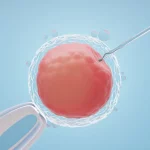
Introduction
With our program, we have guided multiple patients through the intricate process of embryo transfer. While the medical aspects are well-established, the legal landscape presents complexities that require careful navigation. This article aims to elucidate the key legal considerations of ownership, parental rights, anonymity, and consent, grounded in guidelines from authoritative bodies such as the American Society for Reproductive Medicine (ASRM) and the U.S. Food and Drug Administration (FDA).
Understanding Embryo Donation
Embryo donation involves the transfer of surplus embryos from individuals or couples who have completed their fertility treatments to recipients seeking to conceive. This process offers a unique opportunity for recipients to experience pregnancy and childbirth, despite not having a genetic link to the child.
Ownership of Embryos
Legal Status of Embryos
The legal classification of embryos varies across jurisdictions. Some states regard embryos as property, while others consider them potential life forms with associated rights. For instance, the Alabama Supreme Court ruled that frozen embryos are legally considered children, leading to significant implications for custody and disposition decisions.
Implications for Ownership
When embryos are considered property, ownership rights are typically determined by contractual agreements between the parties involved. These agreements should clearly outline the intentions for the embryos in various scenarios, such as divorce or death. However, when embryos are granted a status like that of a child, courts may apply a “best interest” standard to determine their disposition, which can override prior agreements.
Parental Rights and Responsibilities
Donor Parental Rights
Donors of embryos generally relinquish all parental rights and responsibilities through informed consent documents. According to the American Society for Reproductive Medicine (ASRM), these documents should explicitly state that donors waive any rights to the embryos and any resulting children.
Recipient Parental Rights
Recipients of donor embryos assume full parental rights and responsibilities upon the birth of a child. This includes custody, financial support, and decision-making authority. It’s essential for recipients to understand and accept these responsibilities before proceeding with embryo transfer.
Legal Disputes and Precedents
Legal disputes can arise when agreements are not clear or when parties change their minds. For example, in the case of Evans v. United Kingdom, the European Court of Human Rights upheld the requirement for both parties’ consent to use stored embryos, emphasizing the importance of mutual agreement in such matters.
Donor Anonymity and Disclosure
Types of Donation Arrangements
Embryo donation arrangements can be categorized as anonymous, semi-open, or open:
- Anonymous: No identifying information is shared between donors and recipients.
- Semi-Open: Limited information is exchanged, often through a third party, with the possibility of future contact.
- Open: Full identities are shared, and ongoing contact is possible.
The choice of arrangements impacts on the legal rights and expectations of all parties involved.
Legal Considerations
The level of anonymity agreed upon should be documented in legal agreements. This ensures that all parties have a mutual understanding of their rights and obligations regarding future contact and information sharing. It’s also important to consider the potential implications for any resulting children, particularly concerning their right to know their genetic origins.
Informed Consent and Legal Agreements
Importance of Informed Consent
Informed consent is a cornerstone of ethical and legal embryo donation practices. Donors must be fully aware of the implications of donating embryos, including the relinquishment of parental rights and the potential outcomes of the donation. Similarly, recipients must understand their responsibilities and the legal qualifications of accepting donor embryos.
Components of Legal Agreements
Comprehensive legal agreements should address the following:
- Relinquishment of Rights: Donors waive all parental rights and responsibilities.
- Assumption of Responsibilities: Recipients accept full parental responsibilities.
- Anonymity and Contact: Terms regarding the level of anonymity and potential future contact.
- Dispute Resolution: Mechanisms for resolving any future disagreements.
These agreements should be reviewed and signed by all parties before proceeding with the embryo transfer.
Regulatory Guidelines
ASRM Guidelines
The ASRM provides comprehensive guidelines on embryo donation, emphasizing the importance of informed consent, psychological counseling, and legal agreements to protect all parties involved. These guidelines serve as a standard for best practices in the field.
FDA Regulations
The FDA regulates donated reproductive tissue under Title 21 Code of Federal Regulations (CFR) Part 1271. This includes requirements for donor screening and testing to prevent the transmission of communicable diseases. Both the oocyte and sperm donors must undergo these evaluations before embryos can be donated.
Conclusion
Embryo donation presents a valuable opportunity for individuals and couples to build their families. However, it is imperative to navigate the associated legal considerations diligently. Clear agreements, informed consent, and adherence to regulatory guidelines are essential to protect the rights and interests of all parties involved. Consulting with legal professionals experienced in reproductive law is highly recommended to ensure that all aspects are appropriately addressed.
Note: This article is for informational purposes only and does not constitute legal advice. For specific legal guidance, please consult a qualified attorney specializing in reproductive law.

Dr. Veera Saghar
As an Egg Donor Coordinator, she plays a critical role in our company. Her background as a medical graduate from ISRA UNIVERSITY in Pakistan provides us with a solid foundation in the medical sciences. She has seven years of clinical experience practicing in the USA. This has given her firsthand experience when collaborating with patients and their families.
She is responsible for managing the process of egg donation from start to finish. We identify and screen potential egg donors.





